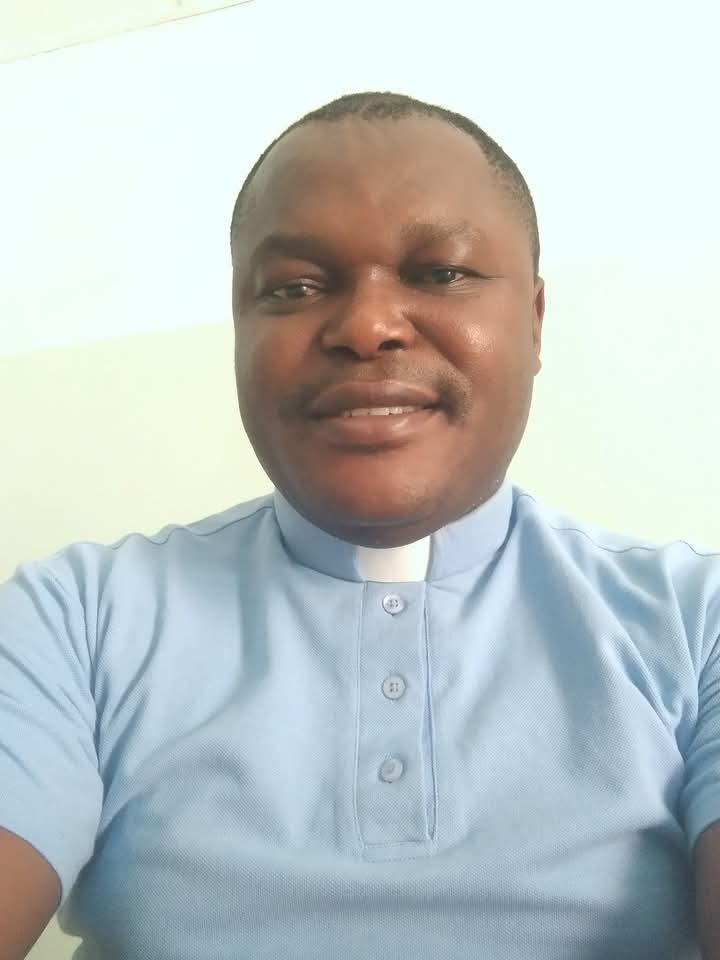By Rev. Fr. Augustine Ikenna Anwuchie
Once revered as a haven of peace and tranquility in Nigeria, the South East has over the decade been gripped by periods of insecurity; its calm replaced by chaos, its harmony by hunting echoes of fear and death.
The present insecurity in the South East is not first of its kind. In the early 1980s and 1990s, insecurity in the South East shook people’s consciousness, validating public fear and throwing the region into cultural, economic and security crises. In a clime that valorises success and achievement, and celebrates wealth, the 1986 Structural Adjustment Programme (SAP) under General Ibrahim Babangida brought dehumanizing consequences.
There was rising inflation, youth unemployment and mass poverty which led many to “short cuts to wealth.” Often couched in traditional spirituality, this state of affairs inspired the rise of native doctors claiming to make people rich through ritual money. Stories of missing people, kidnapping, decapitation and sale of human body parts for ritual money caused anxiety and fears. Just like today, the failure of the economic and moral systems was manipulated for selfish and criminal endeavors.
The activities of this genre came to a climax in Imo State with the “Otokoto Ritual Saga”. It all began in 1996 when Vincent Duru, the owner of Otokoto Hotel, lured 11 year old Anthony Ikechukwu Oparaocha, and in collaboration with his son and some hotel workers, murdered the boy. His body was decapitated and harvested for ritual purposes. In a whirlwind of investigation and manhunt, a journalist exposed the crime having obtained photographic evidence. This caused public outcry and mass riots in Owerri. The police stepped in. The rest is history.
There was also the case of Eddy N’Agwu whose case of ritual killing ran from 1998-2000. He was accused and found guilty of keeping human parts in shrines, involvement in disappearance of villagers and engaging in spiritual manipulation, blood oath and preparing charms for politicians. Patronized by young people looking for short cuts to wealth and politicians searching for guaranteed electoral success, Eddy was arrested by “Bakassi boys,” a vigilant group formed by Governor Orji Uzo Kalu and later extended to Anambra by Governor Chinwoke Mbadinuju.
The 1990s and early 2001 saw the case of Okwudili Ndiwe known as “Derico” or “Deri Nwa Mama”, who rose from indulging in petty crime in Onitsha to a feared kingpin raining terror on Anambra and across the Southeast.
The activities of Otokoto, Eddy N’Agwu and Derico; their tactics of ritual killing, kidnapping for ransome, violence and hired asasination, mirror current events in the South East.
When you think about “Onye Eze Jesus”, the syncretic native doctor arrested in Anambra by Governor Soludo’s neighborhood vigilante, memories of Eddy N’Agwu the acclaimed ritualists of the 1990s comes to mind.
Thus, the present situation in the South East isn’t without an antecedent. It grew out of years of neglect, injustice and marginalization, and years of silently nurturing and arming violent cult gangs by political patrons. All of that now intermingled with yearnings for liberation and quest for “instant riches,” giving birth to the volcano of insecurity and violence we know today as the South East.
I recall an investigation I carried out in 2018, published in the Sophia Newspaper. It was about the growing indices of secret and violent cult groups among secondary school students. These groups, once incubation grounds harvested by politicians for violent operations during elections, later became recruitment hubs for armed and radical groups which now hunt the South East.
These are the remote causes. What about the immediate causes?
The enforcement of “sit at home” and the rise of faceless and violent groups who claim to be fighting to liberate and protect Igbos and Igboland from oppressive governments and the terror of Fulani herdsmen, have left the zone in a security dilemma.
It is obvious that a lot of criminal groups and non-state actors bearing arms now exploit the failing security situation in the South East in the name of fighting for liberation and protecting Igbo.
Yet a serious point which must be made here is that many Igbos have a dangerous disposition to cling to anybody who promises freedom and liberation – obviously a reaction to the trauma of the Biafran war and the continued marginalization of Igbos in Nigeria.
This reaction is self defeating. A few years earlier, these people were held as heroes as they attacked police posts and claimed to scare away rogue officers and dreaded herdsmen carrying out kidnapping activities in our forests and villages. Now that there is no way of holding them accountable. Whether they are still protecting Igboland or they have transitioned into another agenda or a third party has entered the arena remains resolved.
There is also no denying that insecurity in the Southeast is closely linked with high handed responses by Nigerian security forces. There are multiple reports of extra judicial killings and abuse of fundamental rights against peaceful citizens going about their business. These crimes are committed in the guise of hunting down
secessionist agitators. Countless road blocks are set up on busy highways which serve no purpose other than to delay traffic, extort motorists and humiliate travellers.
This has had the negative effect of fueling radicalization and resentment among the youth. Worse still, the general silence of elders and politicians who watch without demanding accountability has turned the South East into a bazaar of death and criminality.
Thus, the failure of security in the South East and the larger question of insecurity in Nigeria has produced three layers of insecurity in the Southeast region.
The first is killing and kidnapping for ritual money and trade in human organs. This is usually linked to young people who hide under false traditional religion to carry out their activities. Closely linked to this is the rise in cyber crimes popularly known as “Yahoo-yahoo.” Practitioners seek potent charms to hypnotize their victims into paying for scams. They are told to bring human parts and large sums of money. This produces a vicious cycle of kidnapping, organ harvesting and armed robbery. Not to mention drug abuse – because to engage in the listed crimes, one has to be in an unnatural state of mind.
To tackle this, task forces established by the governors of Anambra, Enugu, Ebonyi and Imo states enacted legislations against clandestine practice and misuse of traditional religions for dubious purposes. The task forces have so far cracked down on several alleged offenders across the states with promising results. How long this will hold is another matter entirely.
The second layer of insecurity in the South East is kidnapping and attack of farmers by herdsmen. Although this crime has been around for many years, it has intensified recently and added to the security woes of the South East.
It is no longer news that itinerant herdsmen now have home-grown collaborators. In the herdsmen attack at Aguamede community in Eha-amufu, eyewitness accounts testified that some of the people who led the marauding gun men spoke Igbo and Igala and stories of indigenous people spying and collaborating with herdsmen to kidnap their own people abound.
The third layer is the so-called “unknown gunmen.” These are faceless people, some of whom claim to be liberating and securing the South East from the Nigerian government and Fulani Herders. After successfully dismantling police road blocks through guerilla attacks, they metamorphosed into armed gangs – demanding tribute and taxes, and menacing villagers.
The South East has always risen against forces of this nature. It confronted the gun nozzles of white colonizers, engaging the British empire in a protracted war that lasted for 30 years. During the Biafra war, the Igbos fought for their dignity and self defense against the genocidal Nigerian government in a war that lasted 3 years.
The insecurity and ritual killings of the 80s, 90s and early 2000s was crushed by the combined bravery of journalists (especially photo journalists), local vigilante groups like the Bakassi Boys, the decisiveness of Governors Orji Uzo Kalu and Chinwoke Mbadinuju, and the resolve of the people who rose in protest against the criminals, forcing government, public opinion shapers and stakeholders to unite in action.
Unfortunately, the present-day governors and leaders of stakeholder groups in the South East seem to lack the courage and grit showcased by predecessors in saying “enough is enough.” While recent crackdowns on ritual killings and kidnapping across the South East are commendable, it seems the Governors are shying away from the challenge of fishing out unknown gunmen and curbing the activities of dreaded herders terrorizing the South East.
While the question of herders could be tied to larger issues of national politics where governors think that cracking down on them may bring the weight of the federal government currently influenced by pro-Fulani political office holders, the second question of unknown gunmen seems to have absolutely eluded the governors. Or perhaps the two are connected.
If the South East is to reclaim its lost glory as a haven of peace, it must confront the deep wounds of marginalization, the scars of poverty, and the poison of violent ideologies. Only then can it rise again — not as a region gripped by fear, but as a land where the dignity of labour thrives, where peace is not a memory but a living reality, and where the Igbo spirit — industrious, resilient, and humane — shines once more.
Stay tuned for Part 3: Insecurity in the South West
Fr. Augustine Ikenna Anwuchie is a Nigerian missionary priest working in the West African sahel region


























